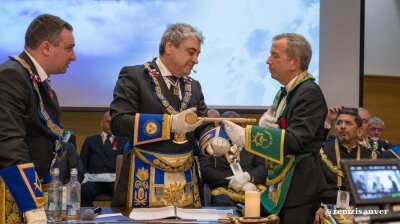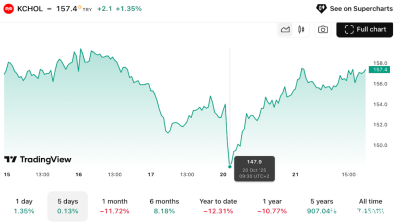The Macedonian parliament adopted the controversial language law for the second time at a session on March 14, during which security had to step in to prevent physical clashes between opposition MPs and the parliament speaker.
The law envisages making Albanian the second official language in the country, and has sparked criticism from the opposition VMRO-DPMNE party, which claims it will undermine Macedonia’s sovereignty and national unity.
However, adoption of the law seems to have been a prerequisite for the governing Social Democratic Union of Macedonia (SDSM) to get support from Macedonia’s ethnic Albanian parties to form a government in 2017, following the inconclusive December 2016 general election.
The second vote was deadlocked for weeks due to the opposition boycott of the parliament and fears that the huge number of amendments filed by the opposition would make a vote impossible. VMRO-DPMNE, which was in power between 2006 and 2016, is currently boycotting the work of the parliament, but its MPs attended the latest session.
The law was adopted with 64 votes in favour, without “no” votes and abstentions, and without opening a discussion on the thousands of amendments submitted by VMRO-DPMNE.
The opposition tried to prevent the adoption of the law, but parliament speaker Talat Xhaferi interrupted the session and declared the law adopted, a live TV broadcast showed.
When Xhaferi put the law to the vote, opposition MPs including former prime minister Nikola Gruevski left their seats and approached the speaker’s chair, where Gruevski started arguing with Xhaferi.
Gruevski threw a glass of water over parliament speaker, but an escalation of the fight was prevented by parliament security.
Xhaferi later held a news conference at which he condemned the behaviour of the opposition MPs. He also said that only the Constitutional Court has the right to say if the law is constitutional or not.
The language law was adopted for the first time on January 11 without the presence of the opposition and without seeking an opinion from the Venice Commission.
Later the law was vetoed by President Gjorge Ivanov, which required MPs to hold a second vote. Ivanov said the law would introduce parallelism in state institutions.
According to VMRO-DPMNE, the language law goes beyond the constitution and will put Macedonia's sovereignty and the unity of the country in danger. VMRO also fears that it will also create a bulky and dysfunctional system, whose application will be practically difficult.
VMRO-DPMNE’s new leader Hristijan Mickoski had asked Prime Minister Zoran Zaev to cancel the adoption of the law in order to get the opposition’s support for his reforms, but this proposal was not accepted.
Zaev said recently that the implementation of the law should be done quickly and that there is nothing “dangerous and tragic” in connection with the law. Zaev also noted that with the adoption of the law Macedonia “will close the last legal aspect of the Ohrid Framework Agreement.” The Ohrid agreement was signed in 2001 to solve a major inter-ethnic conflict and provided greater rights to ethnic Albanian, who comprise around one quarter of Macedonian population of 2.1mn.
During the March 14 session, a group of protestors gathered in front of the assembly, claiming they had arrived spontaneously in protest against the adoption of the law. Some of the protestors verbally attacked journalists.
During the protest, the area around the parliament was closed to traffic.
The parliament was the site of more serious clashes in April 2017 when a group of nationalist protesters stormed the building in protest against Xhaferi’s appointment as speaker, and attacked MPs.
News

Grand master mason arrested as part of Turkey’s Can Holding investigation
Second wave of detentions executed.

Istanbul prosecutors summon Koc official and Akfen boss in Imamoglu investigation
Word of move sparked volatility in stocks.

Ukrainian military strike for first time disrupts operations of Western oil majors
Drone attack damage caused to Russian gas processing plant forces scaling back of output at Kazakh field partly owned by Chevron, Shell and Eni.
_Foto2_Divulgação_Foresea_(1)_1761062969.jpg)
Petrobras secures controversial Amazon drilling licence ahead of COP30 climate summit
Brazil's Petrobras has obtained authorisation to drill an exploratory well near the mouth of the Amazon River, sparking fierce criticism from conservationists just weeks before Brazil hosts UN climate talks.
_1761050969.jpg)



